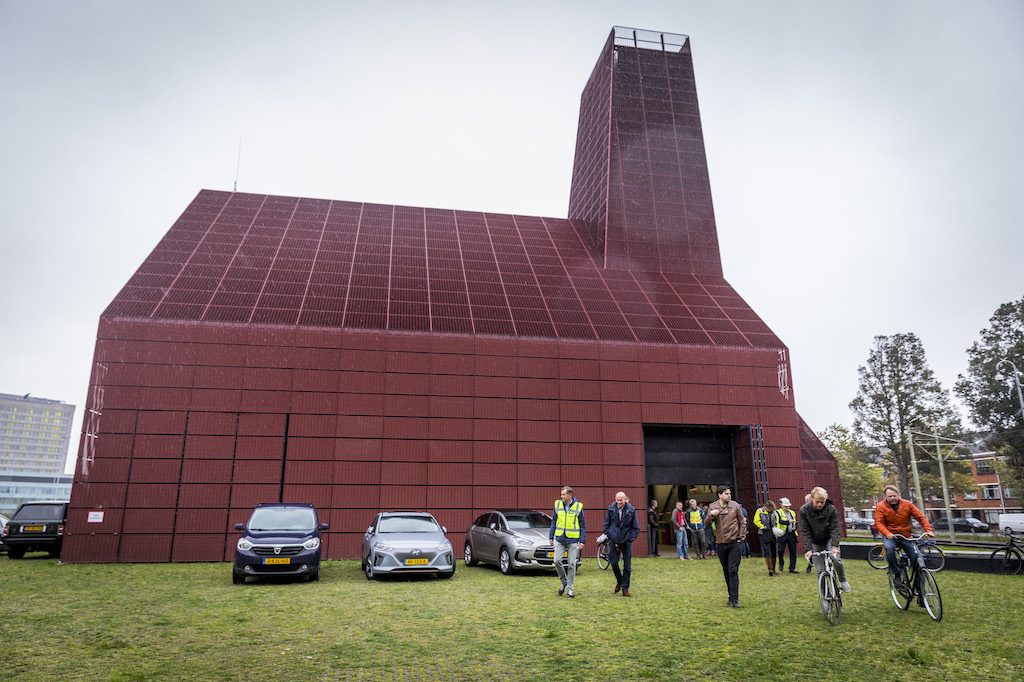Netherlands see geothermal as alternative to Russian gas
Geothermal provides a great opportunity in decarbonisation, stable prices and limit dependency on Russian gas, so Marit Brommer of the International Geothermal Association (IGA).
In a recent interview with Dutch publication AD, Marit Brommer of the IGA provided her view on why and how geothermal energy could be not only a sustainable energy solution to the decarbonisation of the Netherland’s heating sector, but also an important source to replace Russian gas.
While the interview looks specifically at the Netherlands and the use and plans for geothermal heat, it shares some interesting details. The Netherlands have been using geothermal energy for heating for quite some time, and particularly heating for greenhouse operations has driven development. The largest planned project though is the Geothermal Central project in The Hague. The eyes of the country are on this project, because if it is successfully it could provide a blueprint for further projects to follow.
The effort to tap geothermal energy targets hot water pump targets water at a temperature of around 80 degrees Celsius pumped from below the surface, where the heat is extracted and the remaining cold water to be pumped back into the reservoir. This is an ideal alternative to natural gas being imported.
But – Marit Brommer – compared to the fossil industry, as well as the sustainable solar and wind energy sector, the geothermal industry is only a small player worldwide. “We are still [very small] in the energy transition, but our ambition is to become giants”, says Brommer. “That is only possible if you get people on board.”
To be able to scale up, it is important, according to Brommer, that as many successes as possible are shared in the countries where geothermal energy is already being used or experimented with. Now geothermal energy is still mainly used to generate electricity, as is the case in Italy. The oldest power station there, in Tuscany, has been generating energy for 110 years. “It is still working. It is an inexhaustible source.” There are also good experiences with geothermal energy elsewhere in the world. For example, countries such as New Zealand, Iceland and Costa Rica are completely independent in terms of energy supply, thanks in part to geothermal energy.
In the future, it expects other countries to increasingly see the benefits of this sustainable energy source. There are several reasons why this has not happened so far. “The need was not so great until now.” That situation has now changed. Not only because of the enormous gas prices due to the conflict in Ukraine, but also because many European countries are in danger of not meeting their climate targets.
Risks
One of the problems so far has been that geothermal energy is not easy to finance. “That has to do with risk. When drilling for oil, it is profitable to be successful one time out of ten. With geothermal energy, it must be successful nine times out of ten. Worldwide, some subsidy money is always needed to cover the initial costs. But that is also what happened at the start with solar and wind energy”. Private investors are not so quick to get involved now because the profit margins are not yet high.
“Geothermal energy is also difficult and complex because you must drill. So, you must deal with a lot of licences and the question of who owns it? Wind and solar energy are not claimed by any country, but under the ground it’s different”. Here in the Netherlands, it is the state that grants the licence.
Despite all this, Brommer thinks it is only a matter of time before the big energy companies get into geothermal energy. “It’s all about when the earnings model becomes interesting for large companies like Shell, which has already gone into geothermal energy.” With the war in Ukraine, the absurdly high prices for gas and the rapid climate changes, this might happen quite quickly.
Experience abroad shows that it is possible to use this energy on a large scale. Brommer points out that some Chinese cities already run entirely on geothermal energy to combat smog. “That is an enormous drive to develop geothermal energy.” In Europe, too, she sees that developments are moving fast. In Munich, 40 per cent of houses are already heated by geothermal energy. And in The Hague, geothermal energy is seen as a game-changer.
It was also one of the reasons for the international organisation, which lobbies for geothermal energy worldwide, to settle permanently in [The Hague] last year. “You also have all kinds of international institutions here, which makes it easier to approach parties. In addition, there is a horticultural sector here that wants to switch to sustainable energy, and a developing city with political support, the presence of large energy companies with a lot of knowledge and a world port nearby. All the ingredients are here to make The Hague a Geothermal Valley”. We recently reported on efforts in The Hague on geothermal district heating and an event held to promote the opportunities.
At the municipality of The Hague, they would like nothing better. Laurens Kok, head of The Hague Business Agency, points out that the city has traditionally been home to many energy companies such as Shell, Aramco and Total, with a total of some 10,000 employees. In recent years, however, The Hague has been fully committed to the energy transition. The arrival of an international organisation such as the IGA fits in perfectly with the municipality’s objectives and will accelerate the sustainability of the sector, Kok expects. “An additional advantage is that we are bringing new business to this old sector, which is already so big. Thousands of people are already busy generating energy worldwide. What we want is to retain those jobs, but for those people to focus more on sustainable energy.”
To scale up, you need the knowledge and money of the oil and gas sector. “That is available in The Hague. So, there is an opportunity to pick it up here. Most countries are busy generating electricity. We’re not going to do that here. That is a completely different application. If this is successful here, we will immediately have an export product.“
Geothermal energy could also provide a solution for the high energy prices of entrepreneurs and residents. “Four out of ten growers go bankrupt due to the energy costs.” Now, the price of geothermal energy in the Netherlands is still linked to the price of gas. “But that should be abandoned immediately”, she says. “Of course, we have to make money, but it is crazy to generate local energy with global prices.”


















